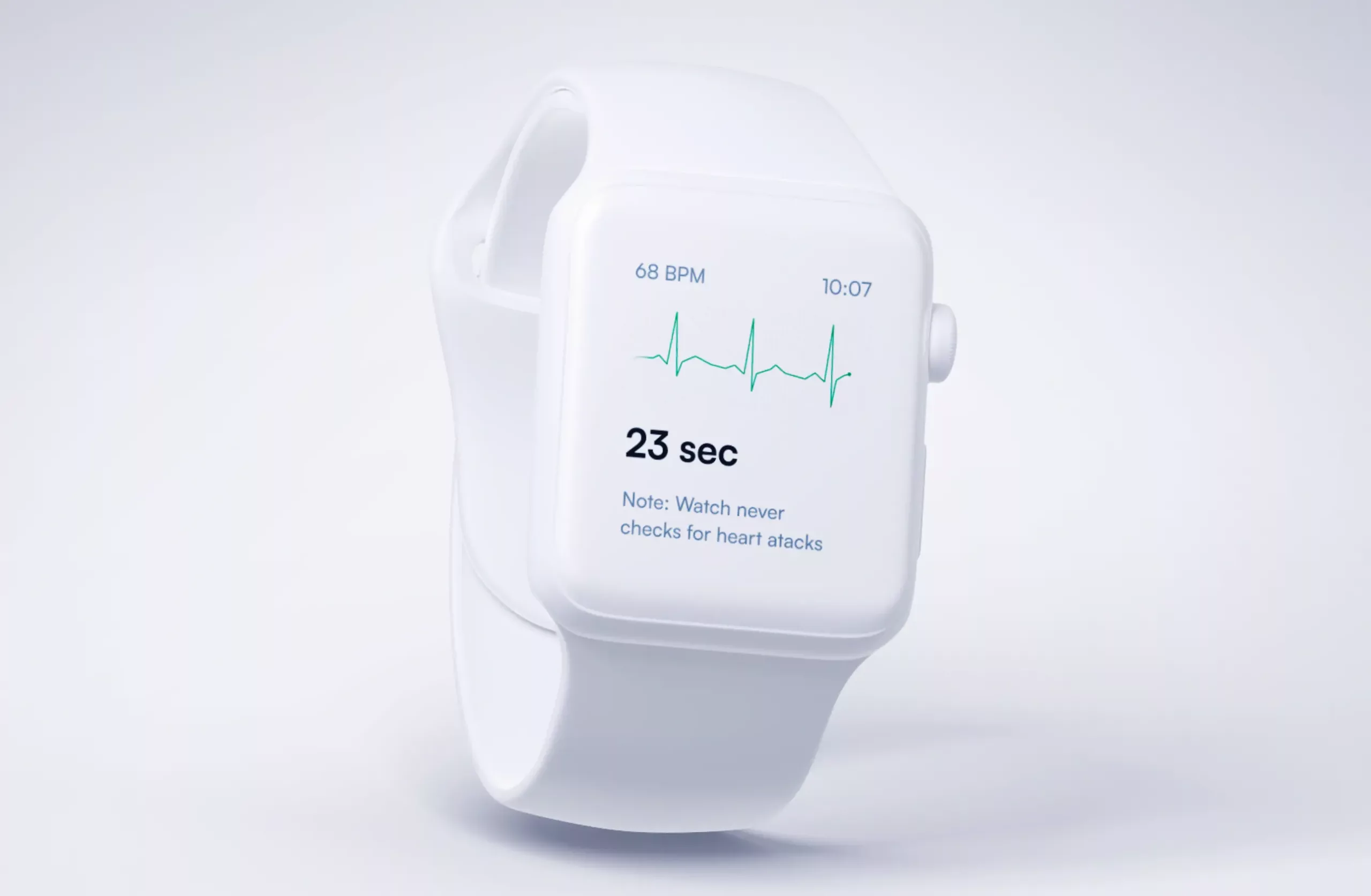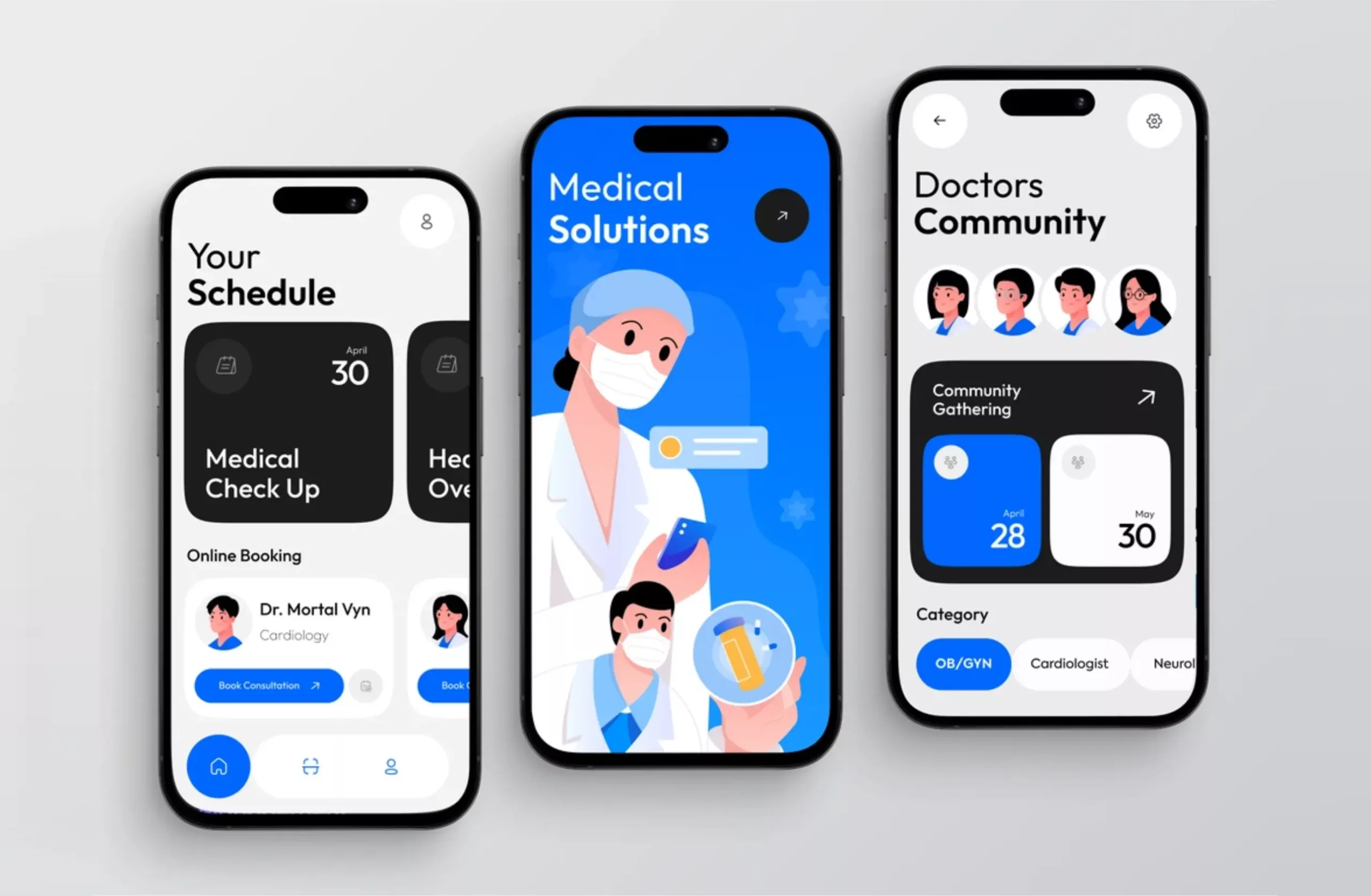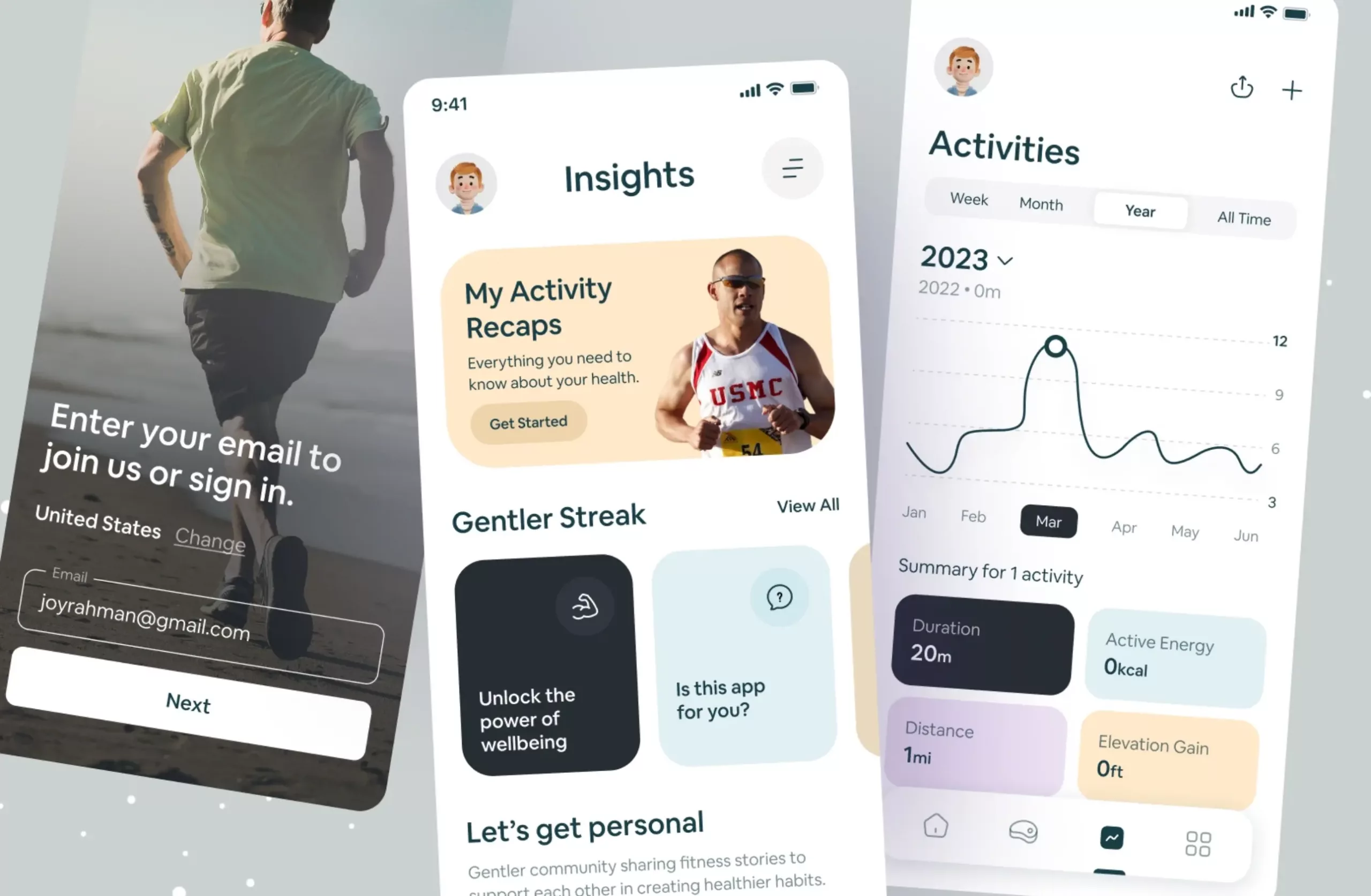
Date added
13.07.2023
Healthcare App Development: 4 Powerful Solutions and Their Respective Cost
Time to read: 5 min
Healthcare
Healthcare mobile app development is a tough task that requires extra focus on analysis, generating ideas and finding solutions. The applications should target and benefit doctors, patients, nurses, prescription sellers, administrators and lab technicians.
Custom software comes in various types, each serving different purposes and offering unique features to improve medical care. Users can explore and make the most of these apps. Each digital healthcare software has its functions and is suitable for different users. In this article, we'll go over the differences between trendy medical applications and give you cost estimation for each.

Why is Healthcare App Development Such a Big Trend?
Every industry is jumping on the mobile market bandwagon to offer innovative solutions to customers, and the medical sector is no exception. Healthcare app development is a profitable way to improve the daily lives of doctors and patients by offering a wide range of advances in clinical services.
Medical systems worldwide face sustainability challenges that are worsened by the COVID-19 crisis. However, technological innovations are opening up new growth opportunities for the sector. As a result, some countries are actively supporting and developing digital health strategies in response to the impact of the pandemic.
The increasing popularity of mobile and wearable devices has sparked a strong interest in the mobile health (mHealth) app development, which include medical and lifestyle (self-care) solutions. Statistics indicate that the global medical mobile application market is expected to exceed $11 billion by 2025.
According to another survey, in January 2022 alone, 4.66 billion people worldwide accessed the Internet, while nearly 5.22 billion people own cell phones. Since January 2020, the number of unique mobile users has increased by 1.8 percent (93 million). No wonder, mobile health apps have become the driving force in the industry.

Key Types of Healthcare Applications
In a recent research conducted by Morning Consult, it was found that two out of five adults in the U.S. use health applications. If you're an entrepreneur or the owner of a medical startup looking for healthcare mobile app development services, let's take a closer look at some key software types and their unique features.
Electronic Health Records (EHR) Apps
An electronic health record (EHR) is a digital representation of a patient's complete medical history. It's maintained by healthcare providers over time and contains important administrative and clinical data relevant to the person's care by a particular medical worker.
This healthcare app development solution includes demographics, progress notes, medical issues, medications, vital signs, medical history, immunizations, laboratory data and radiology reports.
By automating information access, the EHR has the potential to streamline physician workflows, save time and increase efficiency. Moreover, the EHR directly or indirectly supports various care-related activities through interfaces that enable evidence-based decision support, quality management and outcomes reporting.
EHRs play a critical role in healthcare information technology and offer several benefits:
Comprehensive Data: EHRs store a variety of patient data, including medical history, diagnoses, medications, treatment plans, allergies, x-rays and lab and test results.
Decision Support: EHRs provide access to evidence-based tools that help healthcare providers make informed decisions about patient care.
Workflow Automation: EHRs automate and streamline medical providers' workflows, reducing administrative burdens and leaving more time for direct patient care.
Telemedicine Apps
This healthcare app development software allows you to contact medical professionals such as doctors, psychiatrists or nurses through your phone or computer. Instead of going to the clinic, you can have video calls with them using special apps or platforms. Some services even offer online chat messaging, email support or phone calls.
Telemedicine isn't intended to replace in-person doctor visits, but to work alongside regular healthcare. You can use telemedicine to:
Talk to a doctor to see if you need to physically visit the clinic.
Request or renew prescriptions for your medications.
Get help with minor health problems and receive treatment.
Access therapy and other mental health services.
In addition, some telemedicine apps go beyond just acute care visits and aim to become primary care providers. Good examples of such solutions include MDLIVE, Lemonaid and LiveHealth.

Health and Fitness Tracking Apps
Fitness tracking apps are a good example of how technology can connect businesses and consumers, benefiting both parties. In January 2022, they were downloaded an incredible 16.91 million times, compared to just 3.23 million times in 2018, according to Statista.
These custom healthcare app development solutions come in different shapes and sizes. You'll find workout libraries like Nike Training Club, pedometers like Fitbit, workout applications like Peloton, comprehensive wellness programs like BetterMe and even unique outdoor training apps like Dryft.
By using these solutions, users can set personal goals, receive personalized insights and recommendations and track progress over time. They serve as virtual companions that help stay motivated, accountable and engaged in a health and fitness journey. Additionally, these apps often offer features such as workout routines, guided meditations, healthy recipe suggestions and community support, fostering a holistic approach to overall well-being.

Pill Reminder Apps
How can pill reminder apps benefit people? Taking medications correctly, without changing or skipping doses, is crucial for their optimal effectiveness. These apps can help you stick to your medication schedule. Non-compliance with medical instructions, also known as medication non-adherence, is estimated to be the cause of about 125,000 deaths each year.
There are several reasons why patients don't take their medications, including high cost, concerns about side effects, a misunderstanding of the need for the medication or an underestimation of the time needed to see results. However, a major reason for medication non-adherence, pill reminder applications address, is forgetfulness or difficulty managing multiple medications.
Here is an overview of the best features of these mobile healthcare app development solutions:
Easy access to medication names and simple addition of new ones.
Effortless entry of dosage times.
Timely alerts remind users to refill prescriptions.
Ability to track or share a family member's medication.
Health Insurance Portability and Accountability Act (HIPAA) compliance with encryption and regular security updates to safeguard health information.
What is a Healthcare App Development Cost?
Fitness apps have become essential tools for people who want to manage their daily activities and lead healthy lifestyles. They offer a range of features, such as tracking your workouts, self-care and mindfulness options, personalized training programs, convenient login options, direct messaging and helpful notifications. Building a fitness app typically requires a significant investment; the price depends on a healthcare app development company, ranging from $55,000 to $310,000. At the same time, the cost of telemedicine apps can vary from $50,000 to $200,000.
In addition, wellness apps provide valuable access to expert advice and support. Some allow users to connect with licensed health experts who can provide personalized guidance on nutrition and exercise. Others offer peer support networks where users can connect with peers who share similar health goals and face similar challenges. Developing a wellness app typically costs between $30,000 and $100,000.
Wrapping Up
Healthcare app development offers powerful solutions that have the potential to transform the way we access and use health services. In this article, we explored four key solutions: telemedicine, health and fitness, electronic health record (EHR) and pill tracking apps. Each of these solutions addresses specific healthcare needs and challenges, providing convenience, efficiency and improved patient outcomes.
Want to craft your own healthcare app?
Don’t hesitate to hit us up!
111 Minutes’ software engineers build up
scalable solutions for healthcare to meet
multiple medical needs and challenges.
You find this article interesting ?
